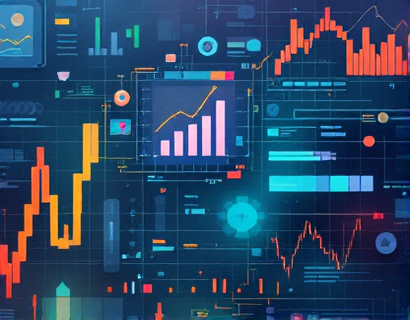Empowering Nonprofits: Essential Software for Streamlined Operations and Enhanced Impact
In the realm of nonprofit organizations and advocacy groups, the efficient management of operations and the maximization of impact are paramount. Specialized software solutions have emerged to address these needs, offering tools that streamline processes and enhance engagement. This article delves into the critical software tools that can revolutionize advocacy and nonprofit operations, focusing on communication, campaign management, and donor relations. By leveraging these essential tools, organizations can better focus on their core missions and drive meaningful community change.
Communication Tools for Nonprofits
Effective communication is the backbone of any successful nonprofit organization. Specialized communication software helps nonprofits maintain clear and consistent messaging across various platforms. These tools enable teams to collaborate seamlessly, ensuring that all stakeholders are aligned and informed. Key features include customizable templates, real-time updates, and integrated notification systems. By using these tools, nonprofits can reduce miscommunication and ensure that their messages reach the intended audiences efficiently.
One of the most valuable aspects of communication software for nonprofits is its ability to manage internal and external communications simultaneously. Internal tools facilitate team collaboration, project management, and document sharing, while external tools support newsletters, press releases, and social media updates. This dual capability ensures that nonprofits can maintain a cohesive brand voice and keep all parties informed, regardless of the communication channel.
Key Features of Communication Software
- Customizable templates for emails, newsletters, and social media posts
- Real-time collaboration and document sharing
- Integrated notification systems for timely updates
- Comprehensive reporting and analytics for communication effectiveness
By implementing robust communication tools, nonprofits can enhance their operational efficiency and ensure that their messages are consistent and impactful. This, in turn, helps build trust and credibility with supporters, donors, and the communities they serve.
Campaign Management Software
Campaign management is a critical function for nonprofits aiming to drive change and achieve their goals. Specialized campaign management software provides a comprehensive platform for planning, executing, and evaluating campaigns. These tools offer a range of features that help nonprofits organize their efforts, track progress, and measure success.
One of the primary benefits of campaign management software is its ability to centralize campaign data. This centralization allows teams to access and analyze information from a single dashboard, streamlining the decision-making process. Key features include campaign planning tools, volunteer management, donation tracking, and reporting capabilities. These features enable nonprofits to create well-structured campaigns that are both effective and efficient.
Key Features of Campaign Management Software
- Campaign planning and scheduling tools
- Volunteer recruitment and management features
- Donation tracking and reporting
- Automated email campaigns and reminders
- Comprehensive analytics and performance metrics
Automation is another significant advantage of campaign management software. By automating routine tasks such as email follow-ups and reminder notifications, nonprofits can save time and resources. This allows staff and volunteers to focus on more strategic activities, ultimately enhancing the overall impact of the campaign.
Moreover, campaign management software often includes integration capabilities with other tools and platforms, such as CRM systems and social media channels. This integration ensures a seamless workflow and helps maintain a cohesive approach across all campaign activities.
Donor Relations Software
Building and maintaining strong relationships with donors is essential for the sustainability and growth of nonprofit organizations. Donor relations software is designed to help nonprofits manage donor data, track interactions, and personalize communications. These tools play a crucial role in fostering long-term relationships and increasing donor retention and giving.
One of the primary functions of donor relations software is donor data management. These systems allow nonprofits to store and organize detailed information about each donor, including contact details, giving history, and preferences. This comprehensive data management ensures that nonprofits can tailor their communications and outreach efforts to individual donors, enhancing the relevance and impact of their interactions.
Key Features of Donor Relations Software
- Donor database management with detailed profiles
- Automated donor segmentation and targeting
- Personalized communication and outreach tools
- Reporting and analytics for donor engagement metrics
- Integration with giving platforms and CRM systems
Personalization is a key aspect of effective donor relations. Donor relations software enables nonprofits to create personalized communication campaigns based on donor preferences and giving history. This personalized approach not only increases the likelihood of repeat donations but also strengthens the emotional connection between the nonprofit and its supporters.
Additionally, donor relations software often includes features for recognizing and rewarding donors. By acknowledging and thanking donors through personalized messages and recognition programs, nonprofits can build loyalty and encourage ongoing support. These features help create a sense of community and appreciation among donors, fostering a more robust and engaged supporter base.
Integrating Software for Comprehensive Impact
The true power of these specialized software solutions lies in their ability to integrate seamlessly with one another. By connecting communication, campaign management, and donor relations tools, nonprofits can create a unified platform that supports all aspects of their operations. This integration ensures that data is consistent across systems, reducing the risk of errors and improving overall efficiency.
Integrated systems also facilitate better data analysis and reporting. Nonprofits can gain valuable insights into donor behavior, campaign performance, and communication effectiveness by accessing a centralized data repository. These insights enable data-driven decision-making, allowing organizations to optimize their strategies and maximize their impact.
Benefits of Integrated Software Solutions
- Consistent and accurate data across all systems
- Enhanced collaboration and communication among teams
- Improved reporting and analytics for informed decision-making
- Increased efficiency and reduced operational costs
- Greater alignment and coordination in campaign and donor relations efforts
By leveraging integrated software solutions, nonprofits can streamline their operations, reduce redundancies, and focus more on their core missions. This holistic approach ensures that all aspects of the organization work in harmony, leading to a more significant and sustainable impact in the communities they serve.
Conclusion
In conclusion, specialized software solutions are invaluable tools for nonprofits and advocacy groups seeking to streamline operations and enhance their impact. Communication, campaign management, and donor relations software each play a critical role in different aspects of nonprofit operations. By integrating these tools, organizations can achieve greater efficiency, consistency, and effectiveness in their efforts to drive meaningful community change.
As technology continues to evolve, the landscape of software solutions for nonprofits will undoubtedly expand. However, the core principles of streamlined operations and enhanced impact remain constant. By embracing these tools and leveraging their capabilities, nonprofits can continue to make a profound difference in the world.











































